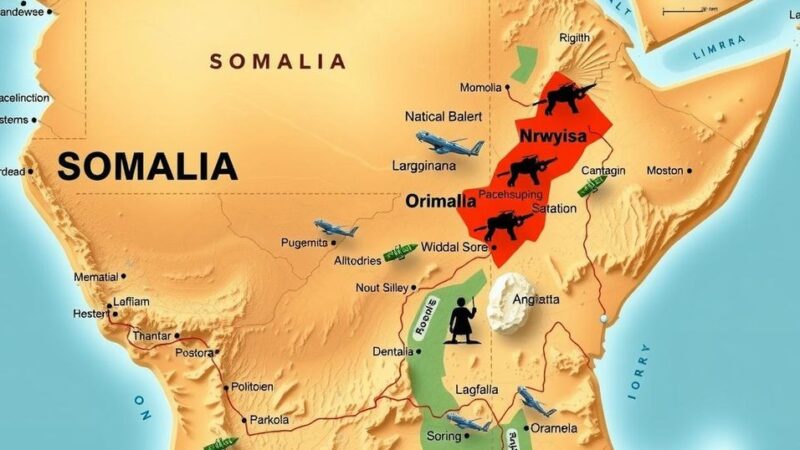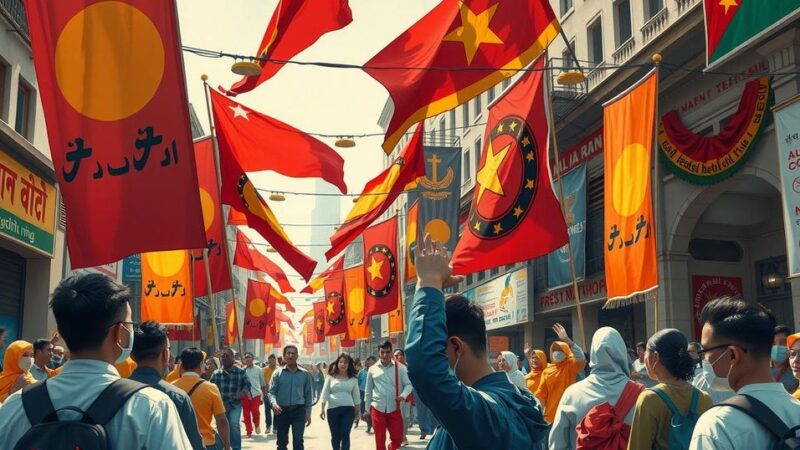President Gustavo Petro of Colombia has announced plans for a special election aimed at advancing stalled health and labor reforms. He urged supporters to rebel against critics, touting the need for a popular consultation to seek voter approval. Despite facing opposition in Congress, Petro is determined to energize his base ahead of next year’s elections, emphasizing accountability and reform in his speeches.
In a rally held in Bogota, President Gustavo Petro called on his supporters to “rebel” against centrist and right-wing politicians who have hindered his proposed reforms on Colombia’s health system and labor laws. Petro announced plans for a special election, known as a popular consultation, which would allow voters to approve or reject critical health and labor legislation that has stalled in Congress due to political disagreements.
Petro criticized members of Congress who oppose his reforms, stating, “The people have made lots of sacrifices to be governed now by monarchs and tyrants.” As Colombia’s first leftist president, Petro faces significant challenges in the Senate where his Historical Pact movement holds only a fifth of the seats. He granted national government workers a day off to participate in the protests supporting the special election initiative, which drew thousands to Bolivar Square.
Petro urged voters to hold Congress accountable, encouraging them to “punish” legislators who he believes prioritize corporate interests over public welfare. For the outcome of the special election to be valid, Senate approval is needed, and a turnout of one third of registered voters is required, translating to about 13 million individuals.
Political analysts express skepticism regarding the government’s ability to mobilize sufficient support for the special election. Despite winning 11.2 million votes in 2022, analysts suggest that utilizing public funds for campaigning may invigorate support before the upcoming congressional elections in March.
Petro’s campaign includes radical reforms such as eliminating insurance companies from the health system and allowing a government agency to manage social security payments. However, legislators have repeatedly rejected these proposals, citing concerns over excessive government control and competence in managing patient care. Additionally, his labor reform plan, aimed at improving conditions for nocturnal workers and reducing precarious employment, faced setbacks as it was postponed during a key committee vote.
As more than half of Colombians work informally without labor contracts, critics argue that Petro’s reforms could discourage businesses from hiring and fail to provide incentives for the informal workforce.
President Gustavo Petro’s call for a special election to advance health and labor reforms underscores his administration’s struggle against a resistant Congress. While Petro aims to empower voters and challenge corporate interests, doubts remain about voter turnout and the feasibility of his proposed changes. Historical precedents suggest potential difficulties in rallying sufficient public support and overcoming legislative opposition. Moving forward, the successful execution of these reforms may hinge on the government’s ability to mobilize advocates within the electorate.
Original Source: www.mymotherlode.com






